Disaster Response
Disaster Assessment and Reporting Tool
StRAP and the Emergency Watershed Protection Program (EWP) provide resources and funding for stream repair projects following natural disasters.
The NC Division of Soil and Water Conservation (DSWC), in conjunction with NRCS and local Soil and Water Conservation Districts, has developed the Disaster Assessment and Reporting Tool (DART) to simplify and automate the EWP and/or StRAP site reporting process. The goal is to facilitate EWP applications for current and future disasters and to accommodate StRAP site assessment and applications. Users can currently use DART in the field or office to record most data required for the EWP Field Data Report (FDR) and Damage Survey Report (DSR). Sites not accepted for EWP funding may be automatically considered for StRAP funding. Learn more about StRAP
To use DART, download the ArcGIS Survey123 app on to your computer or mobile device.
For more information, contact:
Steven Porson, StRAP GIS Specialist
The Emergency Watershed Protection Program is a federal watershed recovery program aimed to protect lives and imminently threatened structures in or along waterways. You can read more about the program on the North Carolina EWP Program website.
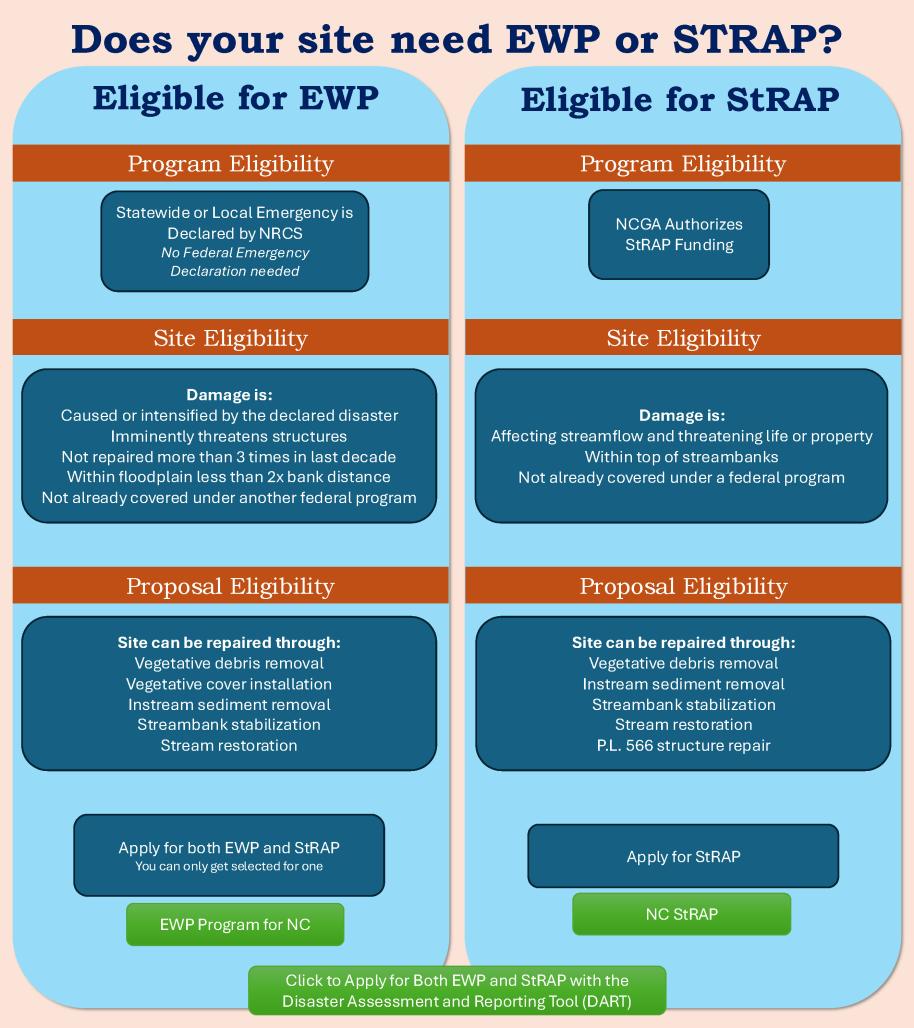
To apply for funding through EWP or StRAP, please collect information on your potential sites using DART. Please note that unless you have an ArcGIS Online account, you cannot edit a site once it has been submitted. You can save entries as a draft using the "Save in Outbox" option (sites saved in the outbox are NOT submitted) and return to edit and submit these sites later. Please ensure each submission is fully completed before submitting. For each program, please refer to the site specific information below:
EWP
- The first step is to contact NRCS to enroll as a sponsor organization. Once NRCS has enrolled you as a sponsor, you will use DART to collect information the sites where you are requesting EWP funding. For additional information, visit the EWP website.
StRAP
StRAP will begin to accept applications in the first batch of counties on December 8th. Counties eligible to begin submitting applications are marked with hashmarks on the map below. Please monitor the StRAP website for updates on when the application period will open in your county.
The Application has 2 parts:
DART will be used to collect site information as part of your application. For each site you want considered for StRAP funding, please fill out the StRAP Survey link on DART (listed below). Fill out a separate response for each different stream segment/project you want considered for StRAP funds.
As the final step of your application, you will fill out a FormSite survey with additional information needed for your application. You can go ahead and start entering sites into DART before the application window for your county begins, but you must also fill out the FormSite form once the application window opens in order to complete your application.
- For more information on what projects are eligible for StRAP, visit the StRAP main page.
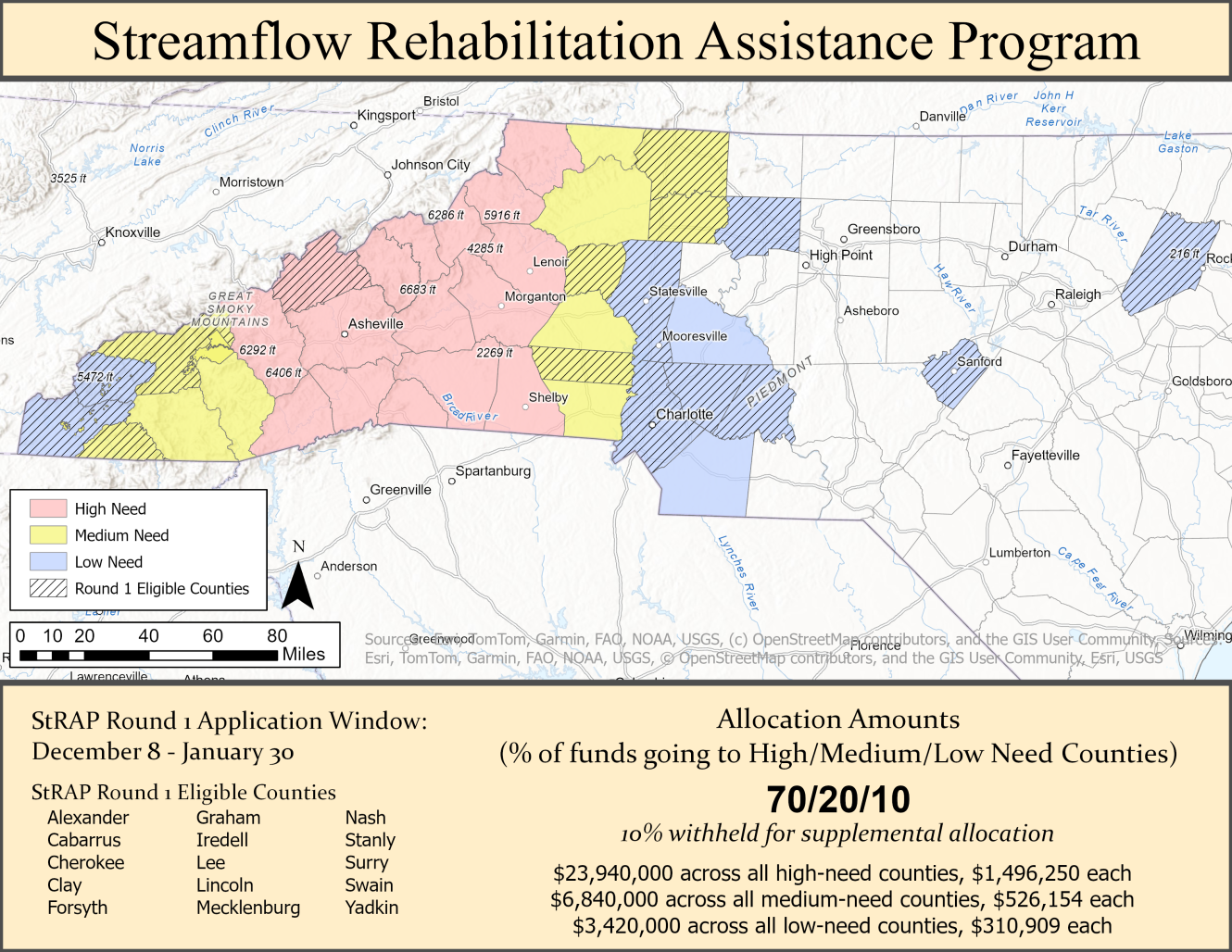
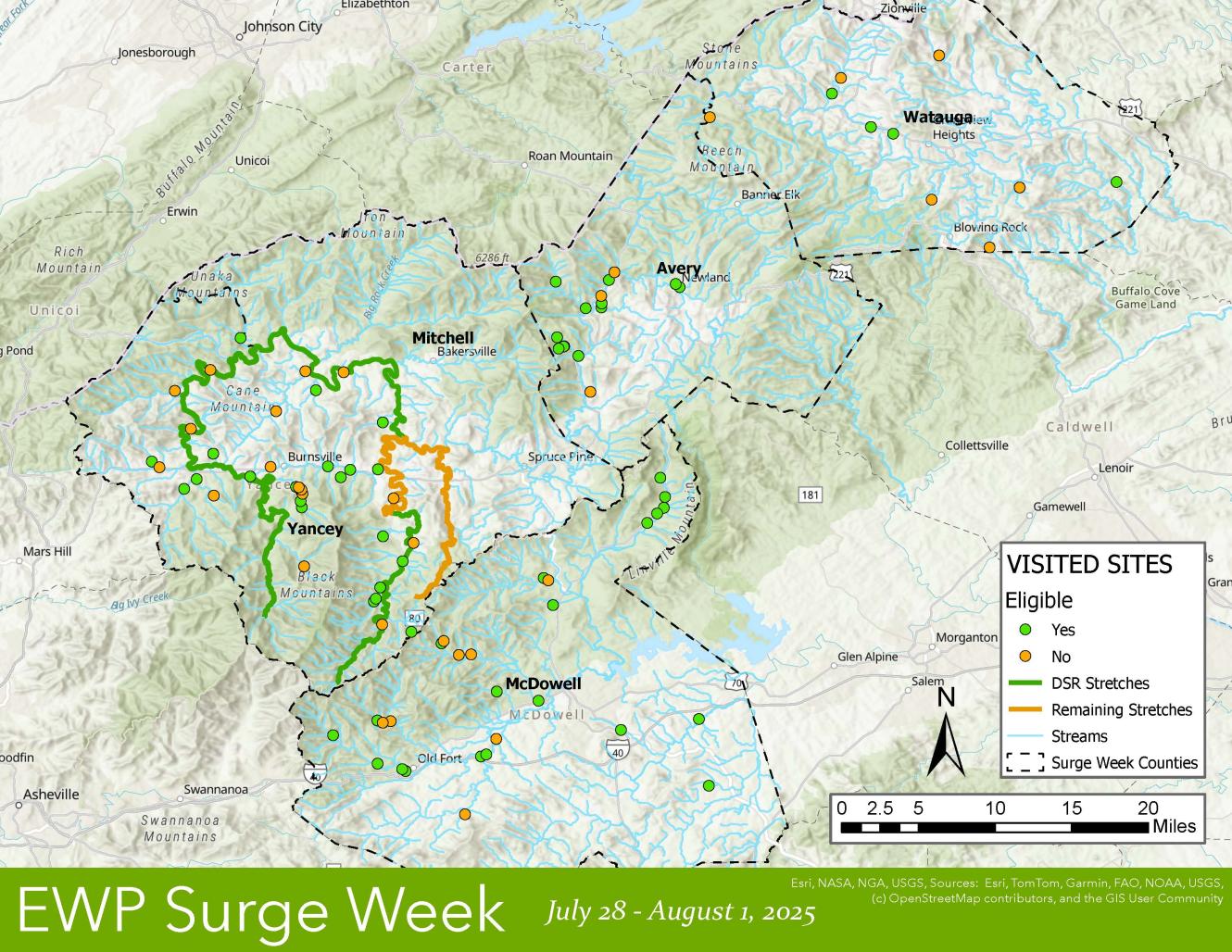
In late July, staff from across the state came together to help assess damage from Hurricane Helene and complete site assessments for the Emergency Watershed Protection Program (EWP). 55 people from Soil & Water Conservation Districts, NC Division of Soil & Water Conservation, Natural Resources Conservation Council, and other groups spent 5 days working in Watauga, Avery, Yancey, and McDowell counties. We assessed 107 different sites, with over 71 sites identified as potentially eligible for EWP. Streambank stabilization and stream restoration on these sites would benefit $86,905,008 worth of property, including homes, roads, bridges, utilities, water treatment plants, and commercial buildings. This week was an important push towards completing stream repair projects in the wake of Helene.
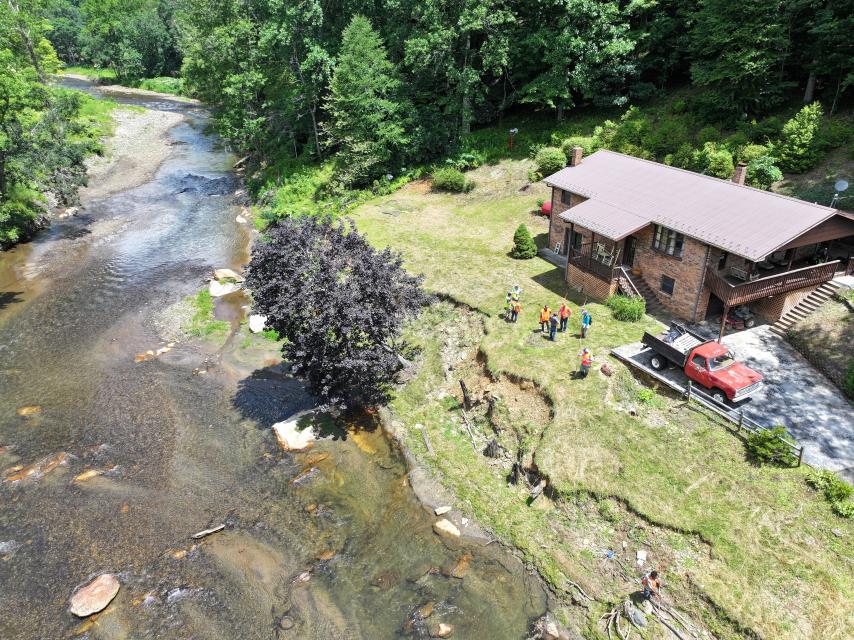
Field crews assessing an eroding bank threatening a home.
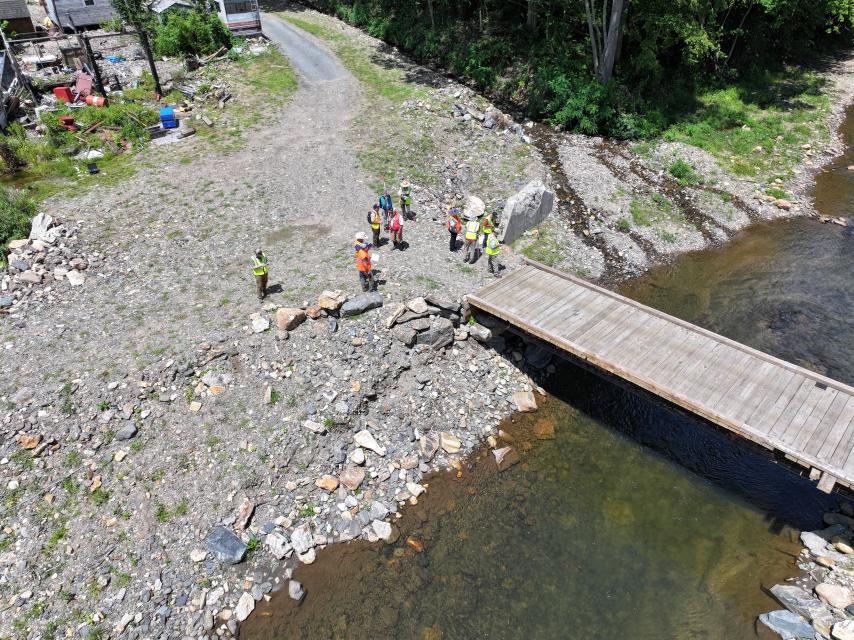
Staff assessing streambank erosion along a temporary bridge built to replace a bridge destroyed during Helene.
DART Dashboard
DART Links
To use the DART links below, first download the ArcGIS Survey123 app onto your computer or mobile device (using Microsoft Store, Apple Store, Android Store, etc).
EWP Survey Link – Use this survey if you need to submit new sites from your desktop to be considered for EWP and/or StRAP funding.
StRAP Survey Link- Use this survey if you are submitting sites to be considered only for StRAP funding.
Trainings & Support
Videos & Webinars
DART Survey for StRAP- Walkthrough
EWP & StRAP Site Assessment Tool Webinar- Recorded on June 5, 2025
This webinar, led by Steven Porson, included a brief presentation on the app’s background and goals, followed by a live demonstration on how to submit records and generate reports.
In-person Training Events
More trainings will be scheduled upcoming and information will be posted.
